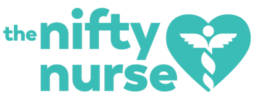As a nursing student, you prepare for countless quizzes and exams to prove that you’ve learned something. Once you graduate, the NCLEX is your final stop, demonstrating that you’ve learned everything you should. So, should you study extra hard for the NCLEX? Or is it just like any other exam?
What Is the NCLEX?
The National Council Licensure Examination (NCLEX) is a test that all prospective nurses must take to become licensed and registered. It evaluates your knowledge and skills to determine if you’re ready to practice safely and competently as a nurse.
The NCLEX-RN is the exam for those who want to become licensed Registered Nurses, while the NCLEX-PN is for licensed practical nurses or licensed vocational nurses. The exam is in computer-adaptive form, meaning the length will depend on a candidate-specific ability.
NCLEX takers must be ready for the following content categories:
- Management of Care
- Pharmacological and Parental Therapies
- Physiological Adaptation
- Reduction of Risk Potential
- Safety and Infection Control
- Health Promotion and Maintenance
- Psychosocial Integrity
- Basic Care and Comfort
The exam has four major categories and six subcategories. Most questions are multiple-choice, but you may prepare for other formats, such as fill-in-the-blank, drag-and-drop, and chart or exhibit questions.
Why Should You Take It?
Ultimately, you won’t be allowed to practice as a nurse until you pass the NCLEX. So, if you want to work as a nurse in public or private hospitals, clinics, or other medical facilities, you must take and pass the exam. The exam allows you to demonstrate your ability to apply nursing concepts in real-world scenarios. Passing the NCLEX has many advantages, but here are four key ones:
Certification
Once you pass the NCLEX, you will receive an official license from your state’s board of nursing. This certification means you’ve met all the educational and clinical requirements to become a nurse. The NCLEX assesses your theoretical knowledge and your critical thinking abilities. Passing it means you can make sound decisions as a nurse and deliver safe healthcare practices to your patients.
Migration
Many nurses today seek to study or work abroad. But to do so, you must prove that you have met the required qualifications. The NCLEX provides top-notch opportunities for holding licenses in your home country, the US, and Canada. It’s a way to show other countries you’re certified and qualified!
Competence
The first and foremost priority of nurses is the patients. To protect their health and safety, NCLEX tests your knowledge, skills, and ability to provide the best care. Passing the exam proves your competence, guaranteeing your patients that you can practice the profession responsibly.
Main Purpose
Lastly, when you take the NCLEX, you fulfill the exam’s primary purpose. You take care of many lives, so qualifications and training are a must to ensure you do it properly. After all, you studied nursing for years to spend the rest of your life helping others!
Should You Study For It?
You might think the NCLEX is just like the exams you’ve aced in nursing school. You can see it that way, but generally, it’s much more complex than most other tests you’ve taken. It’ll be like all your nursing school exams from the first to the fourth year!
Nurses must master various nursing fields to provide the best care to patients, regardless of age, gender, or condition. Given that it covers many topics, it’s important to study for the NCLEX. Studying helps you understand the concepts better and sharpen your critical thinking ability.
The NCLEX is a pass-or-fail exam; the results will reflect your capabilities as a nurse. The goal is to pass and earn that license to work as a nurse. Without the NCLEX, you won’t be qualified to practice your profession. But with preparation, you will go far.
Conclusion
Study for the NCLEX, take practice tests, and understand the topics, and you’ll achieve your goal of becoming a licensed registered nurse. You should review your notes from nursing school and other study materials you have on hand. Moreover, many institutions offer study courses and review sessions for the NCLEX. Overall, with study and practice, you can pass the NCLEX and become the nurse you set out to be. Take the exam as seriously as taking care of patients. Study up, pass the NCLEX, and start your nursing career!

